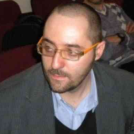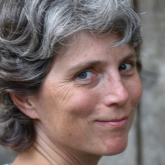Postdoc human factors on advanced architectures for supporting young patients with cancer
Adolescents and young adults (AYA) oncological patients (with cancer or cancer survivors) are in a unique phase of their life, with special needs and challenges, distinct from their younger and older counterparts. AYA patients form unique personal identities, establish careers, and build relationships. The present project aims to build and test in a Multicentric approach, a digital architecture to support a “personalised digital follow-up environment”. This is based on data integrated from wearable sensors, and processed by AI tools to support AYA patients in their journey to recovery.
Adolescents and young adults (AYA) oncological patients (with cancer or cancer survivors) are in a unique phase of their life, with special needs and challenges, distinct from their younger and older counterparts. AYA patients form unique personal identities, establish careers, and build relationships. The present project aims to build and test in a Multicentric approach, a digital architecture to support a “personalised digital follow-up environment”. This is based on data integrated from wearable sensors, and processed by AI tools to support AYA patients in their journey to recovery.
This position is part of the European Union Project LATE-AYA, and you will collaborate within a large multinational network to define the requirements of this digital architecture. Are you eager to contribute to groundbreaking research on personalized approaches with the potential for a significant patient impact? Then this project is perfect for you!
We are looking for a motivated, steadfast, innovative and open-minded postdoc researcher who can work in a diverse environment of clinicians, sensor developers, experts, and patients to drive the processes required for successful hardware and software integration. You should be ready to travel regularly around Europe for project meetings and communicate successfully with stakeholders.
You will gain experience in project management, supervision, and grounded work (may include biosensor integration) under the direct supervision of Dr Simone Borsci and Dr Russell Chan.
Information and application
For questions about the position please approach dr. Simone Borsci, e-mail: s.borsci@utwente.nl. Please submit your application before June 10th and include:
- A cover letter of at most 1.5 page A4, including a brief emphasizing your specific interest, qualifications and motivation to apply for this position;
- A full Curriculum Vitae, including the title of your dissertation and contact information for at least two academic references;
- Relevant doctoral diploma;
- A publication list.
We are an equal opportunity employer and value diversity at our university. We do not discriminate on the basis of race, religion, color, national origin, gender, sexual orientation, age, marital status, veteran status, or disability status. We will ensure that individuals with disabilities are provided reasonable accommodation to participate in the job application or interview process, to perform essential job functions, and to receive other benefits and privileges of employment. Please contact us to request accommodation.
About the department
You will work closely with and be supervised by the Work package PIs Dr. Simone Borsci and Dr. Russell Chan.
The CoDE section consists of teachers and researchers with backgrounds in psychology, educational science, mathematics, or computer science. We teach courses on methodology, data-analysis, and cognitive psychology. Our research focuses on data-based solutions for societal problems related to education, health, and human factors. In our teaching and research, we make use of the latest developments in measurement and (large-scale) assessment, such as neurophysiology, extended reality, eye-tracking, psychometrics, and machine learning.
About the organisation
At the Faculty of Behavioural, Management and Social Sciences (BMS), we unite the worlds of people and technology to address today’s complex societal challenges. We are passionate about understanding human behaviour, fostering responsible innovation, and designing solutions that create societal value. Our educational programmes span disciplines such as Psychology, Business Administration, Public Administration, Communication Sciences, Philosophy, Educational Sciences, and Health Sciences. Through our bachelor’s and master’s degrees, Professional Learning & Development programmes, and interdisciplinary research themes – including Emerging Technologies & Societal Transformations, Resilience, Smart Industry, Learning, and Health – we empower students and researchers to make a positive societal impact.
At BMS, we combine critical thinking with practical action. From advancing sustainable mobility with innovations like the world’s most efficient hydrogen car to shaping policies that promote digital inclusion, our work contributes to a healthier, fairer, and more sustainable future. Whether it’s exploring how technology influences human behaviour or leveraging data and innovation to transform industries and communities, we ensure that technology serves people – and not the other way around.
As an employer, BMS offers a vibrant, inclusive, and entrepreneurial environment where you can thrive personally and professionally. Join us and become part of a forward-thinking community that equips you to shape the future – for yourself and society. With us, you will become part of a leading technical university with increasing, positive social impact.





